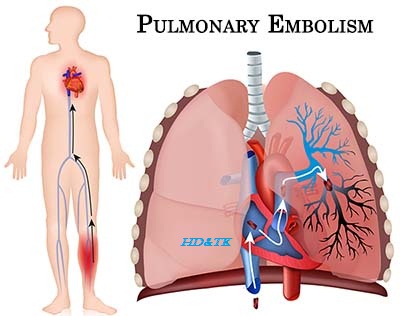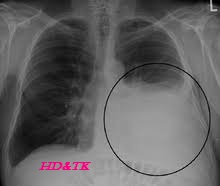Diarrhea
Diarrhea can be described as an abnormal
increase in the frequency, volume or liquidity of your stools. The condition
usually lasts a few hours to a couple of days. Diarrhea is typically associated
with abdominal cramps. The most common causes of the condition are viruses,
bacteria and parasites.
Signs & Symptoms:
Diarrhea can be described as an abnormal
increase in the frequency, volume or liquidity of your stools. The condition
usually lasts a few hours to a couple of days. Diarrhea is typically associated
with abdominal cramps.
The most common causes of diarrhea
include:
Viruses
Bacteria
Parasites
Other causes include medications, such as
antibiotics that disturb the natural balance of the bacteria in your
intestines, artificial sweeteners and lactose, which is a sugar found in milk.
Diarrhea that persists for more than a
couple of days is considered chronic and may be a sign of an underlying condition,
such as inflammatory bowel disease or an infection. In these cases, diarrhea
may lead to dehydration and requires the care of your doctor. Dehydration
occurs when the body has lost too much fluid and electrolytes -- the salts
potassium and sodium. The fluid and electrolytes lost during diarrhea need to
be replaced promptly because the body cannot function properly without them.
Signs and symptoms associated with
diarrhea may include:
- Frequent loose, watery stools
- Abdominal cramps
- Abdominal pain
- Fever
- Bleeding
- Lightheadedness or dizziness from
dehydration
Diarrhea caused by a viral infection, such
as a stomach virus, or bacterial infection also may cause vomiting. In
addition, blood and mucus in the stools may appear with diarrhea caused by
bacterial infections.
Diagnosis:
Your doctor will ask about your medical
history, perform a physical examination and order routine blood, urine and
stool tests. Other diagnostic tests used to make a diagnosis of constipation
include sigmoidoscopy and colonoscopy.
Sigmoidoscopy
For a sigmoidoscopy, the doctor uses a
special instrument called a colonoscope, which is a long, flexible tube that is
about as thick as your index finger and has a tiny video camera and light on
the end, to exam your rectum and lower part of your colon. During the
procedure, everything will be done to help you be as comfortable as possible.
Your blood pressure, pulse and the oxygen level in your blood will be carefully
monitored.
Your doctor will do a rectal exam with a
gloved, lubricated finger; then the lubricated colonoscope will be gently
inserted. As the scope is slowly and carefully passed, you may feel as if you
need to move your bowels, and because air is introduced to help advance the
scope, you may feel some cramping or fullness. Generally, however, there is
little or no discomfort. Occasionally, some abdominal pressure, which may be
provided by your nurse, or a change in position may be needed to avoid looping
of the colonoscope within the abdomen. Your doctor will advance the scope until
he or she has examined the left side of the colon. Afterwards, the scope is
then carefully withdrawn while a thorough exam of the colon is performed. At
this point in the exam, your doctor will use the colonoscope to look closely
for any polyps or other problems that may require evaluation, diagnosis or treatment.
The procedure typically takes between 10 and 15 minutes.
Colonoscopy
Colonoscopy is used to evaluate symptoms
such as abdominal pain, bloody bowel movements, altered bowel habits such as
constipation or diarrhea, and weight loss. This test is similar to
sigmoidoscopy, but the doctor looks at the entire colon, rather than just the
left side. The term "colonoscopy" means looking inside the colon.
Colonoscopy is a procedure performed by a gastroenterologist, a well-trained
specialized doctor.
Colonoscopy also is performed using a
colonoscope, which is a long, flexible tube that is about as thick as your
index finger and has a tiny video camera and light on the end, to exam your
rectum and lower part of your colon. During the procedure, everything will be
done to help you be as comfortable as possible. Your blood pressure, pulse and
the oxygen level in your blood will be carefully monitored.
By adjusting the various controls on the
colonoscope, the gastroenterologist can safely maneuver the instrument to carefully
examine the inside lining of the colon from the anus to the cecum. The
colonoscope contains a channel that allows instruments to be passed in order to
take tissue or stool samples, remove polyps and provide other therapy. The high
quality picture from the colonoscope, shown on a TV monitor, provides a clear,
detailed view of the colon. It provides a more precise examination than X-ray
studies.
Your doctor will do a rectal exam with a
gloved, lubricated finger; then the lubricated colonoscope will be gently
inserted. As the scope is slowly and carefully passed, you may feel as if you
need to move your bowels, and because air is introduced to help advance the
scope, you may feel some cramping or fullness. Generally, however, there is
little or no discomfort. Occasionally, some abdominal pressure, which may be
provided by your nurse, or a change in position may be needed to avoid looping
of the colonoscope within the abdomen. Your doctor will advance the scope until
he or she reaches the beginning of the colon, called the cecum. After reaching
this point, the scope is then carefully withdrawn while a thorough exam of the
colon is performed. At this point in the exam, your doctor will use the
colonoscope to look closely for any polyps or other problems that may require
evaluation, diagnosis or treatment. The procedure typically takes between 10
and 15 minutes.
Treatment:
In most cases, diarrhea resolves itself
after two or three days, and almost always within one to two weeks. Usually,
the only treatment necessary is preventing dehydration, which can be done by
drinking replacement fluids and an electrolyte mixture. Adequate levels of
minerals such as sodium, magnesium, calcium and especially potassium are
essential in maintaining the electrical pacing of your heartbeat. Disruption of
your body's levels of fluids and minerals creates a serious electrolyte
imbalance.
Medicines that stop diarrhea should not be
used for people whose diarrhea is caused by bacterial infection or a parasite
because they may prolong the infection. In these cases, antibiotics are
typically recommended. Depending on the severity and type of virus, viral
caused diarrhea is either treated with medication or left to run its course.




Comments
Post a Comment